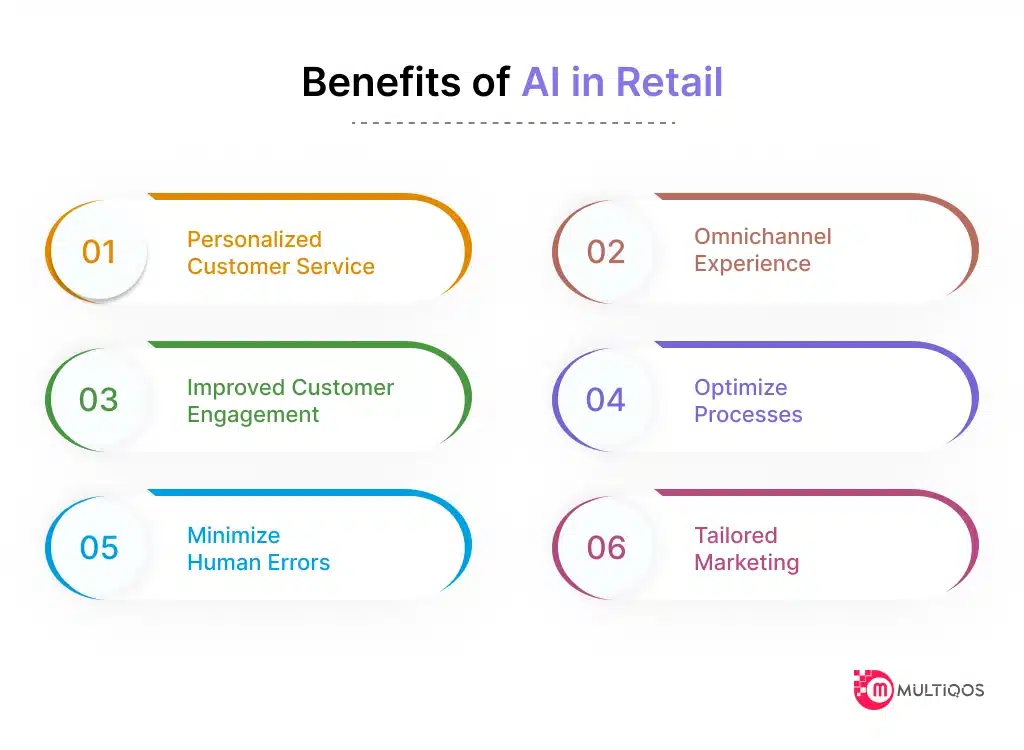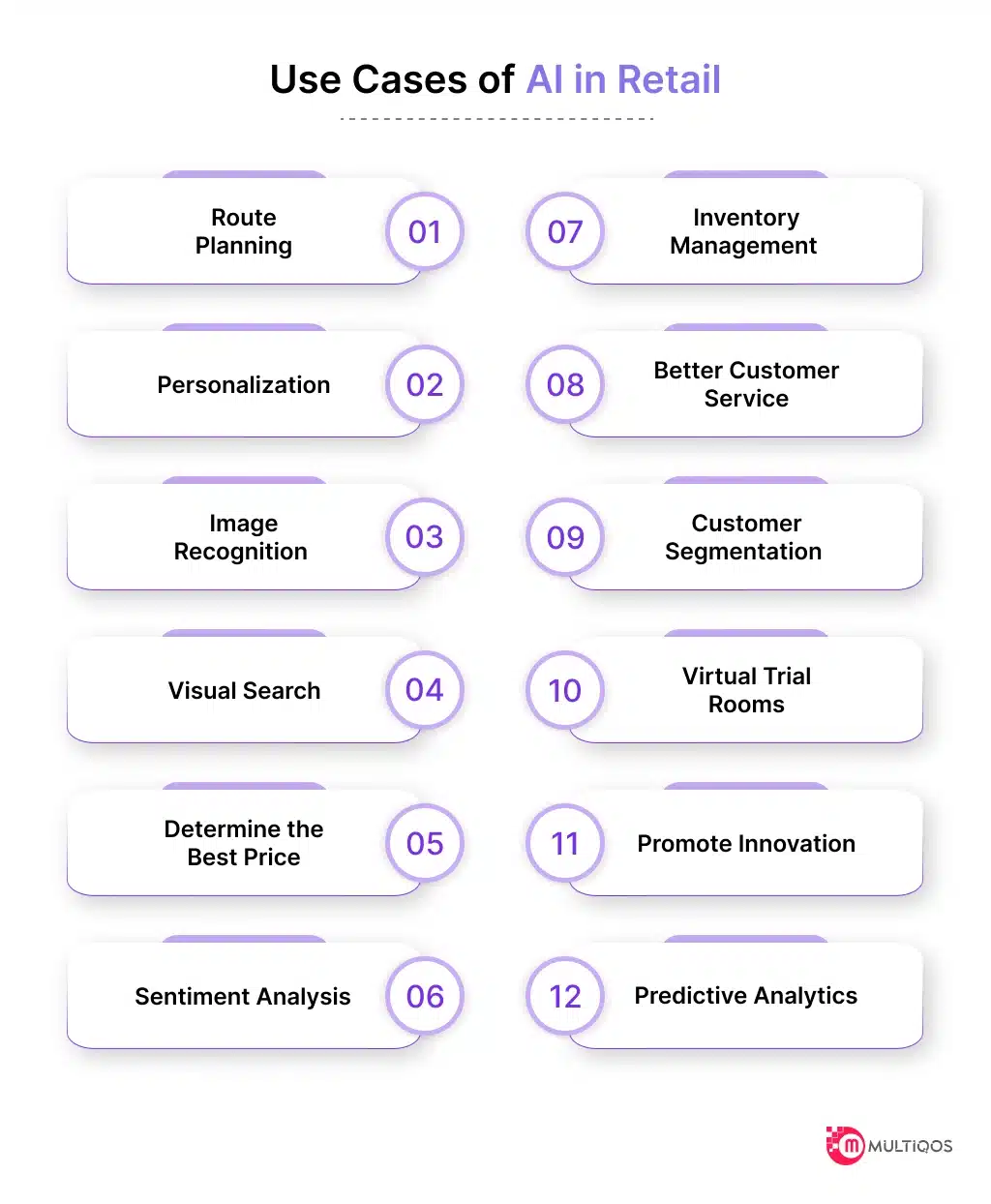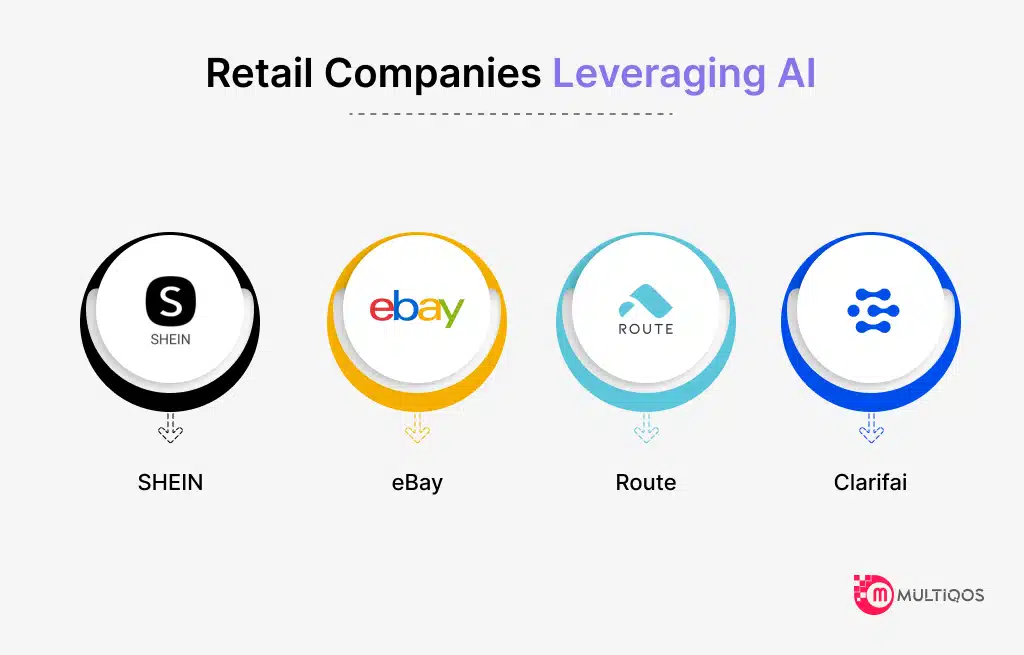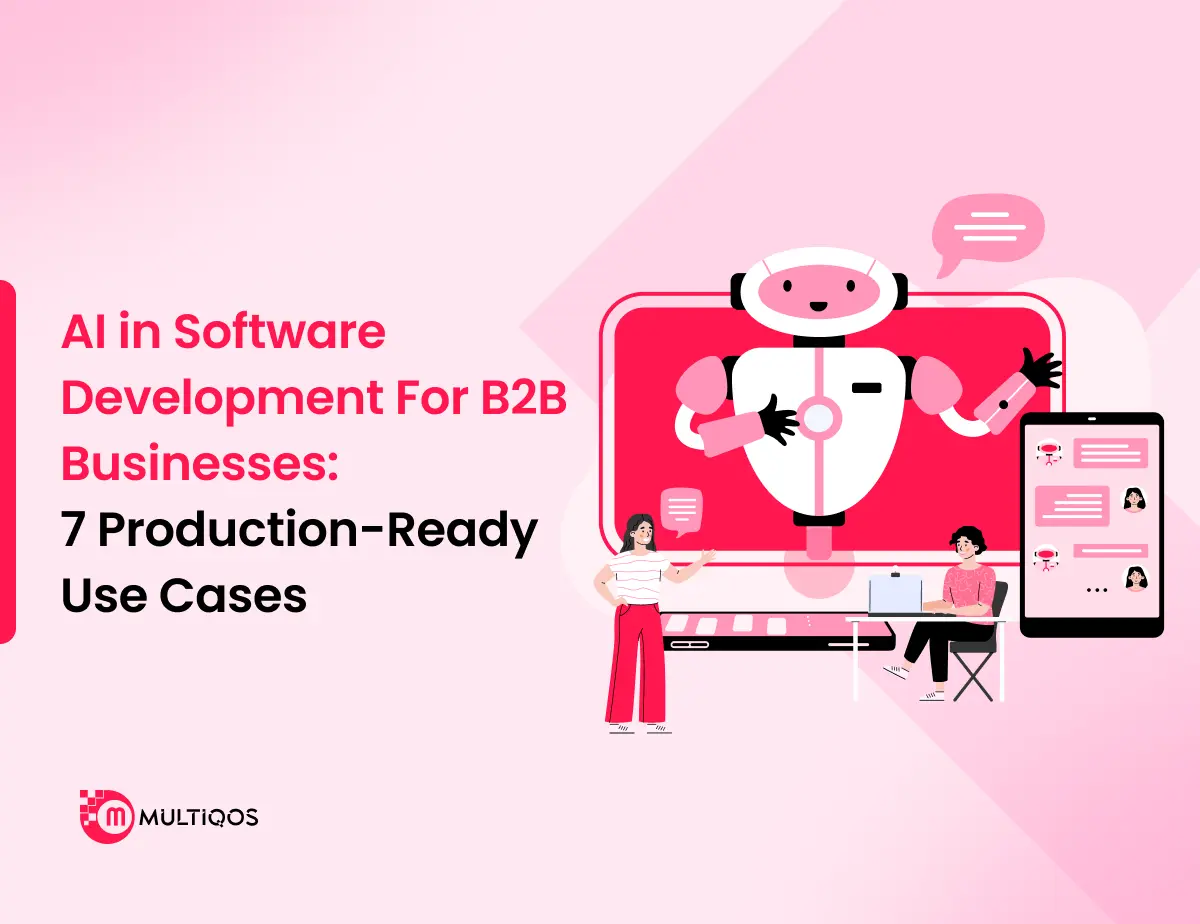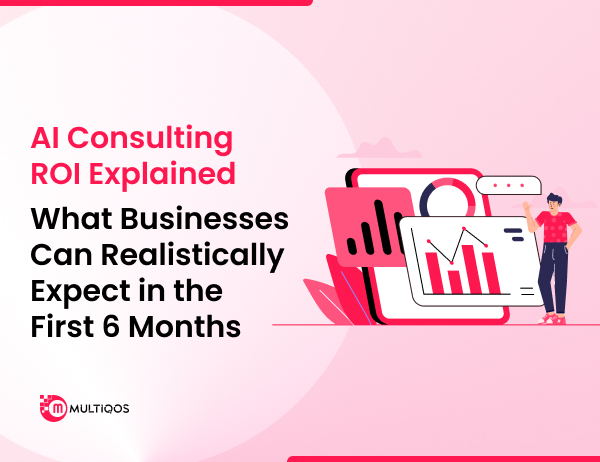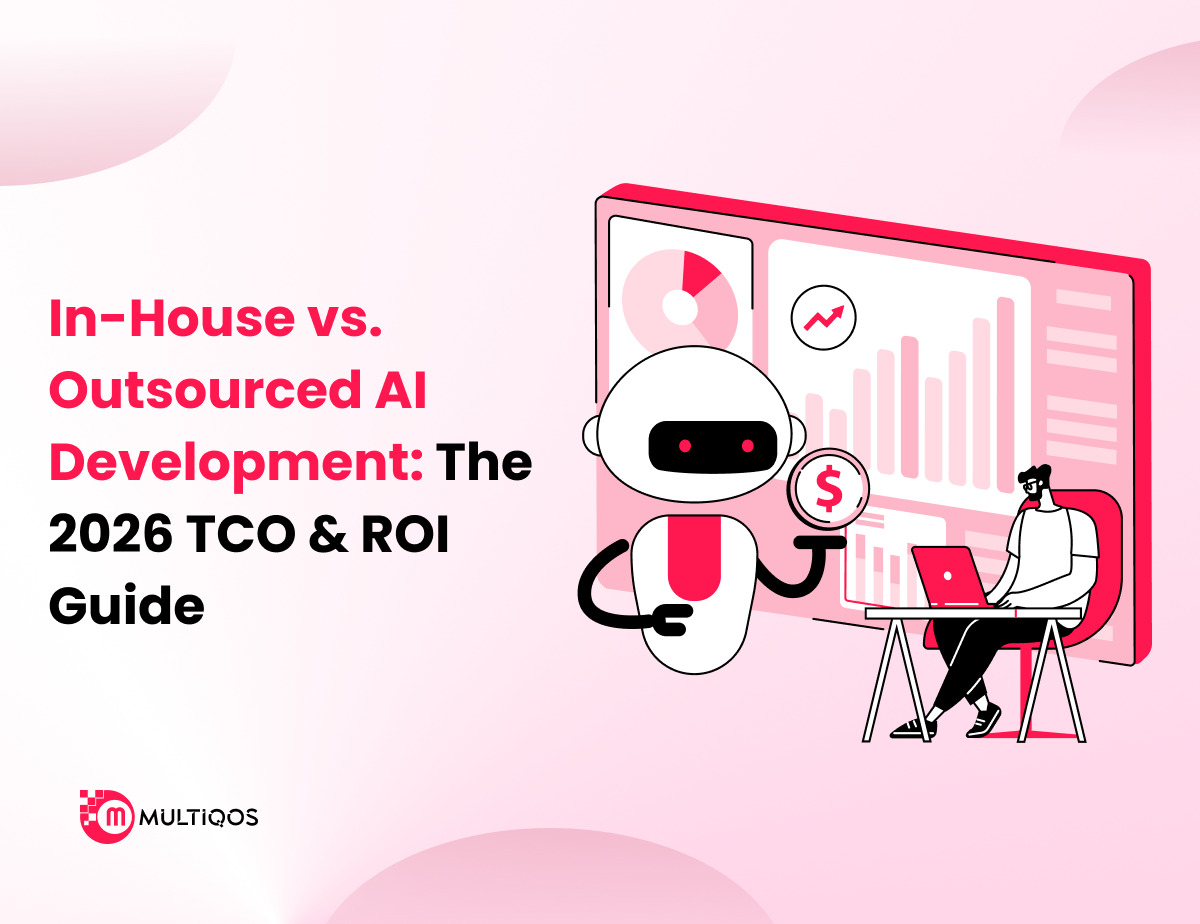Understanding the Pivotal Role of AI in the Modern Retail Industry

Ensuring sustainable business growth and profits is a priority for every retail business today. However, the hyper-competitive business environment demands innovative and customer-centric approaches to shine in this domain.
Technology plays a crucial role in this aspect and the retail industry is already undergoing a digital transformation. Retail businesses use many technologies today including IoT, AR/VR, AI, and Machine Learning.
However, one technology that has a far-reaching impact on the retail industry is AI. It unlocks a whole new level of opportunities for retail businesses. AI or Artificial Intelligence enables businesses to craft dynamic, personalized, and unique experiences that enhance customer engagement.
Today, AI is playing a significant role in the retail industry providing innovative ways to market, promote, and sell. In this article, we will analyze the impact of AI on the retail industry. We explore the benefits and the use cases of AI in this domain.
Let’s dive into the details.
An Overview of AI in Retail
With evolving consumer preferences, the role of AI will take a significant leap in retail. Indeed, the fusion of AI and retail will offer revolutionary shopping experiences. The market size for global Artificial Intelligence in retail will skyrocket from US$9.36 billion to US$85.07 billion by 2032 increasing at a CAGR of 31.8% as per reports.
AI will reshape how retail businesses optimize operations, engage and interact with customers, foster automation, and more. It is used in various aspects of retail including personalization and customer support. Companies can use it to analyze a large amount of data to make customer-centric decisions.
Benefits of AI in Retail
Let’s look at the benefits of Artificial Intelligence for retail businesses.
Personalized Customer Service
Today, personalized services are key to customer satisfaction. Personalization involves adding a customer-specific touch to every communication, offer, and interaction. Customers feel special with personalization and they get more attached to your brand.
As per Salesforce reports, 62% of customers look for personalized offers. AI can help retailers offer personalized recommendations to increase their sales.
Omnichannel Experience
With the use of AI, retailers can create seamless shopping experiences across multiple platforms such as web, mobile, social media channels, and in-store. They can utilize AI-powered chatbots to enhance the shopping experience with personalized services.
Omnichannel experience will enhance customer experience by providing convenient ways to shop. It offers a consistent user experience across various digital platforms.
Improved Customer Engagement
Companies must differentiate their services and offer compelling experiences to customers. The use of AI in your retail business can enhance customer engagement. It offers many benefits like automated checkouts, tracking customer moods, and predicting customer choices.
You can offer immersive and personalized shopping experiences with AI-based retail solutions. It will offer enhanced customer engagement. All in all, AI enhances the overall workflow of retail businesses by optimizing operations.
Optimize Processes
You can get real-time insights into your business by leveraging AI that helps make better decisions. Consequently, it will increase the accuracy and efficiency of processes that will yield better ROI.
By analyzing generated within your business with complex AI algorithms, you can discover trends that help forecast demand. You can retain the right stock of goods and avoid the problems of overstocking or understocking.
Minimize Human Errors
Processes that involve humans are prone to errors that could affect your business operations. However, the use of automated processes can help minimize this problem and avoid potential risks.
AI-powered digital solutions can work more efficiently and accurately than human counterparts. They can perform repetitive tasks speedily and minimize the burden on employees. As a result, you can avoid unwanted costs and get better outcomes.
Tailored Marketing
Marketers can segment customers more effectively with AI-based models that can analyze large volumes of audience data and provide useful insights. After this, they can create better strategies to target these customer segments.
Use Cases of AI in Retail
Route Planning
An optimal supply chain is the backbone of a retail business and logistics play a crucial role in it. Ensuring the smooth transportation of goods from source to destination is pivotal to the success of a retail business.
AI can play a significant role in this aspect of retail business by optimizing routes. With the use of real-time data and complex algorithms, AI-powered systems can predict optimal routes that can reduce transit time and fuel costs.
Besides AI-based route planning can also help you adjust to changing conditions and avoid disruptions in your supply chain. Route optimization will also improve the delivery and procurement speed.
Inventory Management
Keeping the correct inventory is not an easy task. You need better information about your customer demand. Predicting demand can be difficult because it is usually based on surmises. However, AI can help in anticipating demand by analyzing large amounts of data.
You need sufficient stock to ensure the smooth delivery of your products. With the use of AI, you can maintain an optimal stock level and prevent any problems. You can utilize AI to predict buying trends in the future, identify inefficiencies, and align stocks.
Personalization
Retailers are leveraging complex AI algorithms to deliver personalized services. Plus, they can use it to recommend products to customers based on their preferences. AI can help retailers understand customers’ interests by analyzing their demographics, purchase patterns, and social media behavior.
Using this data, retailers not only offer personalized services but also improve the overall shopping experience. It can help them make predictions about customers’ future behavior or preferences. Besides AI-enabled personalization also offers the opportunity for upselling.
AI can help retailers identify the basket of products that customers might be interested in apart from the products they are buying. So, they can sell more and increase their revenue.
Better Customer Service
Customer service is a critical process in a retail business. However, traditional customer services are often prone to human errors, delays, and miscommunications. AI can help automate this process and eliminate the problems of human errors, miscommunications, and delays.
Retailers can leverage AI-enabled chatbots to automate the process of customer services. Chatbots help customers get answers to their queries with human-like interactions. It eliminates the need for human intervention.
These chatbots use Machine Learning, NLP (Natural Language Processing), and AI algorithms to converse with customers. They can provide solutions to their problems, answer common questions, and guide them to get useful outcomes.
Image Recognition
AI technology in retail can also help businesses prevent fraud. With this technology, businesses can identify counterfeit products. They can leverage AI algorithms to analyze and determine which products are fake and which are real.
AI-powered image recognition is an excellent method to identify fake products. Artificial Intelligence algorithms can be used to analyze image data and identify logos, products, and other elements after automated recognition and categorization of products in images.
Apart from identifying and preventing fraud, AI-powered image recognition is also useful in inventory management, product recommendations, and creating visual search.
Customer Segmentation
AI can be used to analyze customers from different sources like purchase history, demographics, social media activity, and more. By using this data AI algorithms can identify customer behavior and categorize based on the similarities.
It can help create customer profiles that have unique preferences and tastes. With this analysis, businesses can deeply understand customer behavior, needs, and preferences. Based on this information, retailers can do targeted marketing and provide recommendations.
AI-powered tools can do customer segmentation based on behavioral patterns, demographics, and other factors. By understanding customer sentiments and categorizing them, you can find out the list of products that best fit their needs.
Visual Search
AI can also enhance user experience by offering a visual search option. With this option, customers can look for products by providing images. AI algorithms can analyze the image and recognize the product. After recognition, it is easy to search for images.
AI algorithms that analyze images and identify patterns can recognize products and offer search results. Such algorithms can analyze shapes, colors, and other attributes in images to identify products.
Visual search is quite useful in finding relevant products on a website or application. It works by uploading an image instead of typing the product name. American Eagle Outfitters is a company that provides visual search in its mobile app.
Virtual Trial Rooms
Trying out different outfits is a crucial step before purchasing any of them. However, trying out outfits can be an overwhelming and tiresome process. Virtual trial rooms integrated with AI can simplify the process.
Customers can virtually try different dresses without needing to go to the changing room. Virtual trial rooms are one of the futuristic uses of Artificial intelligence in the retail industry. These trial rooms will contain digital mirrors that will allow customers to check out different depressed without even wearing them.
Determine the Best Price
Another important use case of AI in retail is determining the best price for products. It happens because AI can analyze different pricing strategies and show which one can produce the best outcomes.
AI algorithms can use data like promotions, competitors’ products, sales, and more to analyze pricing strategies. One good example is eBay which uses AI-powered pricing algorithms to determine the right prices for products.
Promote Innovation
The use of artificial intelligence will also offer innovation. Retailers can take advantage of AI in product discovery. By analyzing market trends and customer preferences, you can determine the best solution that can satisfy their needs.
Based on this data, you can start a new product line. Retailers can find the market gaps and discover which products can fill that gap. Hence, you get the opportunity to innovate and bring something unique to customers.
Sentiment Analysis
Another awesome benefit of using AI in retail is sentiment analysis. With this, you can analyze the opinions of customers about your product. In addition, you can also learn about what customers think of your brand.
It will help you better understand your customers. Retailers can also analyze the data through social media posts and customer feedback to know the sentiments. Knowing the sentiments can help them find out their shortcomings and work on them to improve customer outlook.
Predictive Analytics
Another good use of Artificial Intelligence in retail is predictive analytics. It involves using AI to predict any potential breakdowns and minimize maintenance overheads. Predictive analytics help to foresee possible technical issues with your systems or machinery.
Retailers can deploy AI to analyze systems and machinery to identify flaws that could result in a potential breakdown. It will expedite the maintenance process and help avoid extra expenses.
Retail Companies Leveraging AI
SHEIN
It is an online retailer that offers a wide range of products like shoes, jewelry, clothing, and other goods. SHEIN sells its products around the world. The company uses AI to personalize the online shopping experience. It offers product recommendations. Plus, it also leverages AI to predict future trends.
eBay
AI is used by eBay to offer personalized recommendations and customer advice. Besides, the company also uses it in pricing, and to improve delivery and shipping times. There are many uses of AI on eBay like image search.
Route
It is a company that offers packaging and shipping-related services to brands. The company helps brands track packages, carbon-neutral shipping, and shipping protection. It uses AI that help brands boost their sales by offering personalized recommendations to them.
Clarifai
Clarifai offers an AI-powered platform that can recognize and classify media content such as images, text, videos, and audio. It can also moderate the content. This technology is widely utilized in eCommerce and retail industries.
Final Thought
We have seen how lucrative AI is in the retail business and the benefits it offers. AI can benefit every retail business by leveraging it to gather useful insights and act accordingly. Plus, it can help automate processes that reduce overall costs and minimize manual efforts.
Investing in AI development can offer great ROI for your business. However, you must always choose a reliable tech partner like MutliQoS with relevant experience and expertise to fulfill your demands.
FAQ on AI in Retail Industry
AI is getting deeper into the retail game providing businesses with critical insights after analyzing vast amounts of data. Consequently, retailers can make better decisions, adjust staff levels, and achieve higher sales during peak hours.
AI offers numerous advantages to the retail industry by improving processes and efficiency. It automates tasks and streamlines the retail process.
Ensuring compliance and maintaining user privacy is one of the key challenges of AI in the retail industry. For example, facial recognition technology can be used to track the emotions and preferences of customers, but it also violates the privacy of individuals.
Get In Touch

